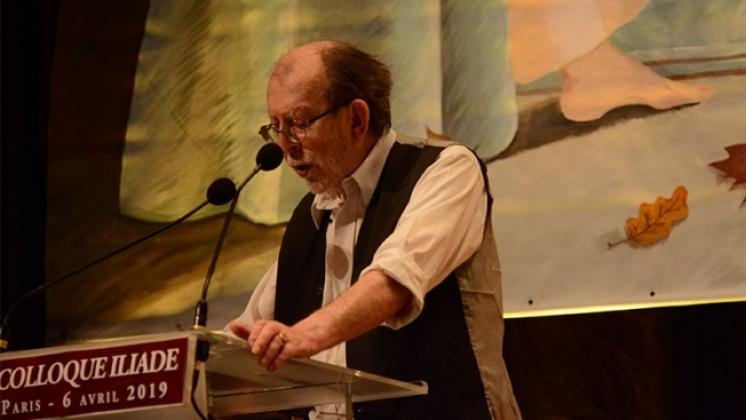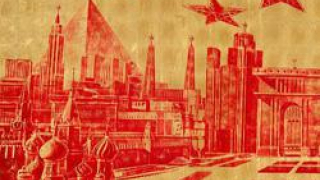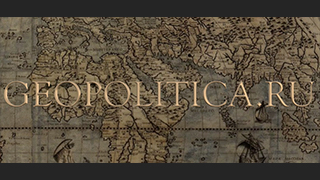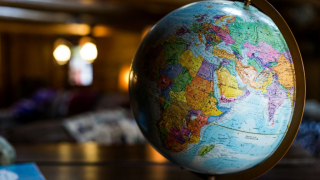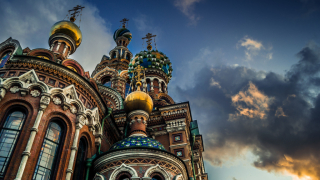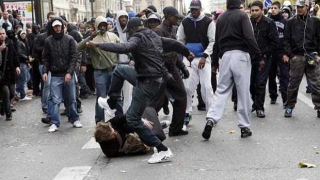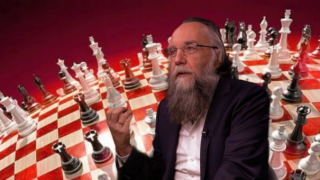For An Illiberal Europe - Colloque ILIADE 2019
Ladies, Gentlemen, Dear friends,
I am going to speak of a relatively new phenomenon that is not without relation to this day's theme. It is illiberalism. The word is a bit barbaric, but its meaning is clear enough: it designates the appearance of new political forms that advocate democracy, but at the same time desire to break with liberal democracy that finds itself in crisis today in just about every country in the world.
The term appeared at the end of the 1990s in the writings of some distinguished political scientists, but it was only quite recently, in 2014, that it gained a foothold with the wider public when the Hungarian Prime Minister, Viktor Orbán, publicly declared, during a Summer University of his party: “The Hungarian nation is not an aggregate of individuals, but a community that we must organize, strengthen, and uplift as well. In this sense, the new state that we are constructing is not a liberal state but an illiberal one.” He added that it is now time to “understand systems that are not western, that are not liberal, and that have made certain nations successful nevertheless.”
What did he mean by that? And what is basically the fundamental difference between liberal democracy and illiberal democracy?
The difference is that liberalism is organized around the notion of the individual and around the notion of humanity, eliminating all intermediary structures, while illiberal democracy, which is democracy itself, is fundamentally organized around the notion of the citizen. In this regard one can define it as a doctrine that separates the classical exercise of democracy from the principles of the rule of law. It's a form of democracy where popular sovereignty and the election continue to play an essential role, but where one doesn't hesitate to derogate certain liberal principles when circumstances require it.
The causes of the rise of illiberalism are evident, and in many regards connect with those that explain the success of populist parties today. Firstly they fit into the observation that liberal democracies nearly everywhere have transformed into financial oligarchies cut off from the people: ineffectiveness, powerlessness, corruption, parties transformed into simple machines to get elected, the reign of experts, shortsightedness, etc. Another observation is added to this, which is more serious: in liberal democracies, nations and peoples henceforth no longer have the means to defend their interests. What meaning can the sovereignty of the people actually have if governments no longer have the independence necessary to determine their major orientations in economic, financial, military matters or even foreign policy for themselves? Can they continue to impose juridical principles that, instead of promoting the cohesion of peoples and the perpetuation of their common values, lead to their dissolution?
Let's re-examine that in detail. Democracy rests in its entirety on the principle of popular sovereignty as constituent authority. Democracy is the form of government that corresponds to the principle of identity between the views of the governing and the governed, the first identity being that of a people concretely existing by itself as a political unit. All the citizens belonging to this political unit are formally equal.
However let's clarify that the principle of democracy is not that of natural equality between men, but that of political equality between all the citizens: suffrage obeys the rule “one citizen, one vote” and not “one man, one vote.” In democracy, the people do not express what propositions would be “more true” than others through voting. They simply tell where their preferences go and indicate if they support or disavow their leaders. As Antoine Chollet very justly wrote, “in a democracy, the people are neither wrong nor right, but they decide.” It's the very foundation of democratic legitimacy. That's why the question of knowing who is a citizen – and who is not – is the founding question all practical democracy. It's also why the political unit's territorial borders are essential. Likewise, the democratic definition of liberty is not the absence of constraint, like in liberal doctrine or with Hobbes, but corresponds to the possibility for each citizen to participate in the collective definition of political orientations and social constraints. Liberties, always concrete, apply to specific domains and particular situations.
Liberalism is quite different. While politics is neither a “sphere” nor a domain separate from others, but an elementary dimension of any society or human community, liberalism is a doctrine that, in the political scheme, divides society into a certain number of “spheres” and pretends that the “economic sphere” must be made autonomous from political power, either for reasons of effectiveness (the market only functions in an optimal manner if nothing interferes with its “natural” functioning), or for “anthropological” reasons (Benjamin Constant said freedom of commerce frees the individual from social power, as by definition it's economic exchange that best permits individuals to freely maximize their interests). The economy, originally perceived as the realm of necessity, thus became the realm of liberty par excellence.
Redefined in a liberal sense, democracy is no longer the regime that sanctifies the sovereignty of the people, but the regime that “guarantees human rights”, meaning subjective rights, inherent to the human person, and declared both “natural and unalienable” for this reason. For the liberals, these human rights take precedence over the sovereignty of the people to the point that popular sovereignty is only respected insofar as it doesn't contradict them: the exercise of democracy is thus placed under conditions, starting with the condition of respecting “inalienable rights” that every individual possesses by very reason of his existence alone. Confused with a “rule of law” that has become the insurmountable horizon of our time, democracy transforms into a movement towards an ever greater equality, this equality, supposed to result from the free exchange of rights, only being understood as synonymous with sameness. The rule of law dissolves the political under the corrosive effect of the multiplication of rights. As Marcel Gauchet said, “ceaselessly invoked, human rights end up paralyzing democracy.”
We must remember that the rule of law is firstly the rule of private law, implying the primacy of law over political power and it rests on the imperative of obedience to the law. While relying on the metaphysics of human rights, the only supposed guarantor of human dignity, it sanctifies the power of general laws as general norms binding everyone, starting with the leaders. Thus legitimacy is reduced to simply legality, positive law reigns in a purely impersonal and procedural fashion. Carl Schmitt showed that this system eliminates the very notion of legitimacy and it proves itself to be incapable of functioning in emergency situations, where the norms are no longer valid. This replacement of the political by right or law actually ends up emptying the political of its substance.
The rule of law necessarily goes hand in hand with liberal individualism and its conception of an entirely “negative” liberty, which is only concerned with the individual, and never the collective. That's why liberalism is fundamentally hostile to the notion of sovereignty – except the sovereignty of the individual of course. For it, any form of sovereignty exceeding the individual is a menace to freedom. So it condemns political sovereignty and popular sovereignty for the reason that legitimacy only belongs to the individual will. Pierre-Paul Royer-Collard already said, “As soon as there is sovereignty, there is despotism.” The individual is set up as sovereign in the absolute, the people enjoys no intrinsic legitimacy.
Not recognizing the validity of any democratic decision that could infringe upon liberal principles or the ideology of human rights, thus liberalism never admits that the will of the people should always be respected. All liberal democracies are representative parliamentary democracies, which means that parliamentary sovereignty is substituted for popular sovereignty. For liberalism the government actually doesn't fundamentally have the power to govern, but to represent society. Hence the fundamental role of representatives who, after having been elected, can do what they want with the power we've relinquished to their benefit. But, the people are all the less likely to be represented as they are only really sovereign when they are present to themselves. We could say that liberal democracy is a democracy without a demos, a democracy without a people.
But you may wonder what's the relation with borders? The relation is evident, and it's twofold.
The ideology of human rights, I've already said, only desires to understand humanity and the individual. But, the political is based on what lies between these two notions: peoples, cultures, states, territories, in which liberalism only sees simple aggregates of individuals. Humanity itself is not a political concept: one cannot be a “citizen of the world,” as the political world is not a universum, but a pluriversum: the political implies a plurality of forces present. It deduces, as Michael Sandel wrote, that “universal principles are unfit to determine a common political identity.” That's why the political implies the existence of borders, without which the distinction between citizens and non-citizens finds itself deprived of meaning. And democracy itself requires borders, as it's only in a well defined territorial framework, determining the scope of the exercise of sovereignty, that the democratic game can be played. That's what the jurist Bertrand Mathieu noted very recently when he wrote: “Democracy implies the existence of a political society, inscribed within borders and formed by a people composed of citizens linked by a community of destiny and sharing common values.”
In this regard it's not by chance that illiberal democracies are starting to multiply at the very moment where the European Union is in the process of breaking up over the migratory crisis. It's not by chance that these illiberal democracies we see establishing themselves today in Central and Eastern Europe are establishing borders worthy of the name, as evidenced by the erection of barriers through which they strive to curb migratory flows. For liberalism, on the contrary, the principle that it imposes is that of “laissez faire, laissez passer”: the free circulation of men, goods, and capital.
Here we find an example of the old opposition between Land and Sea. Only the Land can actually understand borders, as one cannot establish any on seas and oceans. Migratory flows, just like commercial and financial flows, belong to the “maritime” world of ebb and flow, while the political appears intrinsically linked to the “telluric” world, which requires delimitation and front lines.
But we must also see – and it's here that I will conclude – that borders are also limits: they say where political authority and the legitimate will of the citizens to uphold their character, their social-historic specificity, their own sociality, that is to say their mores, stop and begin.
But, today we live in the time of limitlessness, that is to say the generalized negation of limits. We could say we live in time of “trans”: transnationality, transfrontiers, transactions, transsexuals, transparency, transgression, transhumanism. Limit is measure; limitlessness is disproportion – and it's also non-differentiation, hybridization, the eradication of particularities and norms that the dominant ideology has attempted to deconstruct for a long time.
This limitlessness finds its most typical illustration in the very nature of the capitalist system. The fundamental characteristic of this system is actually its orientation towards endless accumulation in both senses of the term: processes that never end and have no other purpose but the appreciation of capital, a system where all surplus is used to reproduce and increase itself. Everything that can impede the circulation of men and things necessary for the planetary expansion of the market, starting with borders, must be eradicated or treated as nonexistent. The logic of the expansion of capital hardly differs in essence from the processes subjugating the world that Heidegger called Gestell or Machination (Machenschaft). Perceived as an object devoid of intrinsic meaning, the world is interpreted as fundamentally exploitable, it is commanded to become cost efficient and the source of profit, that is to say “valuable” in the economic sense of the term. It's limitlessness in theory as well as practice that makes capitalism a system based on disproportion, the negation of any limit, solely concerned with always producing more value in order to further increase and appreciate capital.
You'll notice in passing that the society of individuals is quite naturally a market society, as the limitlessness of desire and the inflation of rights corresponds to the limitlessness that is the very principle of the reproduction of capital. “Economic” man aims to maximize his self interest like Form-Capital1 aims to maximize profit: both seek to increase themselves solely in the category of possessing.
Between the notion of a border and the ideology of liberal capitalism, the contradiction is thus total. The appearance of illiberal democracies confirms it. I want to say that someone who could learn a lesson from this, because he is occasionally known to criticize liberalism, is Pope Francis, who nevertheless never misses an opportunity to preach for the unconditional acceptance of “migrants” whoever they are. “We must build bridges and not walls,” says Pope Francis (who is here in his role because the people of God ignores borders and a sovereign pontiff is etymologically a pontifex, that is to say a man “who builds bridges.”) But that's an unfounded alternative. The pope forgets that between walls and bridges, there are also doors, which can be opened or closed according to circumstances, and especially in certain cases the most effective bridge is the drawbridge, which lowers or rises to open or close the passage allowing access to a threatened city. Today it's time to raise the drawbridge.
Thank you.
Notes:
1) Form-Capital, an expression proposed by the French philosopher Gérard Granel, refers to the idea that capitalism is not only an economic system but also has an implicit anthropological and social dimension. The sociologist Marcel Mauss spoke about a “total social fact” or “total / global social system.
Source: https://institut-iliade.com/colloqueiliade-2019-pour-une-europe-illiberale/

